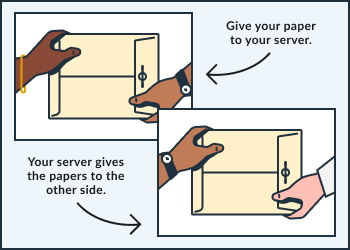
Most judgments (the court order saying what you're owed) expire in 10 years. This means you can't collect on it after 10 years. To avoid this, you can ask the court to renew it. A renewal lasts 10 years.
PRINT EMAILIf you wait even 1 day after 10 years, you’re too late and can’t try to collect your Judgment anymore. The earliest you can renew your judgment is after 5 years.
The general rule is that a renewal lasts 10 years. There is no limit on how many times a judgment creditor can renew the judgment.
This general rule applies to any judgment against a business or government agency, or when the debtor owes $200,000 or more. It also applies to any judgment where the money is owed due to a tort or fraud, or judgments for unpaid wages or other money due to an employee.
What is a tort?Broadly, a tort is when someone does something, usually dangerous or careless, and it causes someone to get hurt or damages something they own. For example, if someone runs a red light and causes a car accident. Common examples are assault, battery, trespassing, or negligence.
A tort is not when someone breaks a contract. For example, when someone signs an agreement with a credit card company, but then does not make a payment they agreed to make. That is called a "breach of contract". It is not a tort.
If the balance owed is less than $200,000 and the money owed is related to medical expenses or personal debt, then an exception to this rule may apply. Otherwise, the general rule applies.
As of January 1, 2023, a judgment can only be renewed once for 5 years if:
If a judgment that meets the above requirements was renewed before January 1, 2023, then it cannot be renewed again. But the prior renewal will still last 10 years.
When a Judgment is renewed, any interest that’s built up to that point is added to the balance owed. You are entitled to interest on the new balance (which now includes the interest). This makes the balance grow faster (“compounds” the interest).
A server will need to mail the other side the paperwork asking to renew the Judgment. If you do not have a current address, you will need to find one. Basic ways to find someone
If you want to add collection costs or interest, fill out a Memorandum of Costs. If you don't have any new costs or interests to add, you can skip this step. How to add interests and cost

This tells the court that you want to renew your Judgment and how much interest and costs to add to the total that's owed.
This lets the other side know that you've renewed the Judgment and tells them how to respond if they disagree.

If you completed one, bring or mail your Memorandum of Costs after Judgment (form MC-012) with signed proof of service.
Pay $45.00 filing fee. If you can’t afford the fee, you can ask the clerk for a fee waiver.
After reviewing your documents, the clerk will issue (sign and stamp) your Notice of Renewal of Judgment (form EJ-195), and return your forms to you. This is the new judgment in your case.
If you mailed your forms, include a self-addressed envelope. Learn more
If you mailed the forms, include a self-addressed stamped envelope with enough postage for clerk to mail the forms to you . If you don't you'll need to pick them up at the court.

To serve them, someone 18 or older, not you or someone else involved in your case, mails the copy of those 2 forms to the person who owes you money. If you also want to file a Memorandum of Costs After Judgment, that form should have been served already.
The person who mails them is your server. Your server then fills out a Proof of Service by First Class Mail (form POS-030).
The person who owes you money has 60 days after service to file a motion asking the court to cancel (“vacate”) or change the Renewal of Judgment . If the other side files this type of motion, you will be served with court forms.
you will need to give the levying officer (Sheriff’s office) a certified copy of your Application for and Renewal of Judgment so you can continue taking money out of their pay.
Civil judgment collection
Once you renew your judgment, you can continue collecting. If the person pays you, you must let the court know.